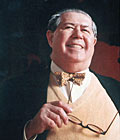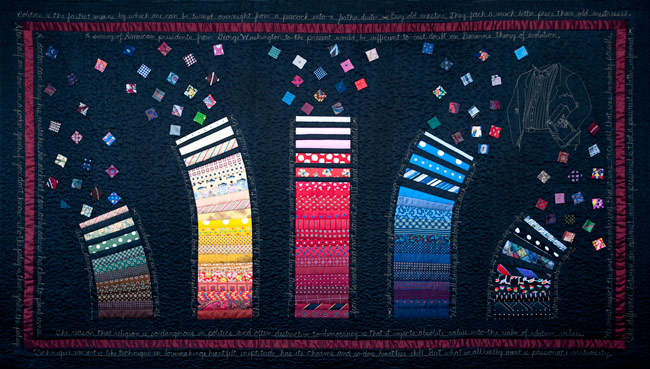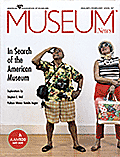Stephen E. Weil – Mentor, Guru, Sage (1928–2005)
“Whatever worthiness a museum may ultimately have derives from what it does, not from what it is.” – Stephen E. Weil
“Beyond Management: Making Museums Matter”
For more than three decades, Stephen E. Weil was a significant and unique presence within the world community of museums.
Both critical analyst and creative thinker, he possessed the rare ability to look at the museum world from outside itself. And what he saw was that, to the larger world, a museum’s value lay in its usefulness. It is not the collection the museum houses, he argued, but what it does with its collection that matters. Mission – Vision – Strategy: these key concepts became his mantra of successful museum management. Moreover, the foundation for these key concepts must be built on the sound business fundamentals of accountability (both within the museum and between the museum and the community it serves), accessibility to clients (the museum’s visitors), and professionalism.
 Steve practiced what he preached. He was a passionate educator and mentor, and played an active role for 19 years at the Museum Management Institute (the predecessor of the Getty Leadership Institute). Many of his students and mentees are now Museum Directors, Chief Curators, Directors of Education, world-renown consultants and lawyers in the museum field, Chief Administrative Officers, and Development Officers, among others. He held academic residences at Ionian University in Greece, Columbia University's Teachers College, and Bates College in Maine. He lectured frequently at museum studies programs, colleges, and universities. He was co-founder and an active leader for 33 years in ALI-ABA, Legal Issues in Museums, and founding chairman of the International Committee on Management for the International Council of Museums.
Steve practiced what he preached. He was a passionate educator and mentor, and played an active role for 19 years at the Museum Management Institute (the predecessor of the Getty Leadership Institute). Many of his students and mentees are now Museum Directors, Chief Curators, Directors of Education, world-renown consultants and lawyers in the museum field, Chief Administrative Officers, and Development Officers, among others. He held academic residences at Ionian University in Greece, Columbia University's Teachers College, and Bates College in Maine. He lectured frequently at museum studies programs, colleges, and universities. He was co-founder and an active leader for 33 years in ALI-ABA, Legal Issues in Museums, and founding chairman of the International Committee on Management for the International Council of Museums.
Among his many awards, Steve was the 15th recipient of the American Association of Museum’s Distinguished Service Award and was chosen as one of the 100 significant contributors to the museum field in honor of AAM’s 100th anniversary.
In life, Steve was my partner and husband. Professionally, Steve was my mentor and a collaborator. In our work together, he retained his focus on the role and mission of the museum in its community. My focus was, and is, on the people working in the museum whose job it is to define and fulfill, day in and day out, the vision and mission that makes a museum successful. His perspective informed and deepened my work, as mine did his. What I learned in our work together, coupled with my own experience, I use today.

Steve’s sense of humor guided his profound thinking.
“Buy Old Masters. They fetch a much better price than old mistresses.” Steve Weil didn’t say that; Lord Beaverbrook did. But had Beaverbrook not, it’s likely Steve would have. To Steve, humor served as the best antidote to life’s challenges, a means of unraveling complex issues, a pin to deflate pomposity, and a goad to keep colleagues on track.
– Stephen K. Urice, “In Memoriam Stephen E. Weil 1928-2005,”
Yearbook of Cultural Property Law 2006
Musings from Steve’s Hirshhorn Bulletin Board
The art market is where the unprincipled sell the untalented to the uninformed.
– John Alexander
History is an interim report.
– R.G. Collingwood
We are all living in somebody else’s dark ages.
– Stephen E. Weil
The difference between an optimist and a pessimist is that a pessimist is better informed.
– Clare Boothe Luce
A doctor can bury his mistakes. An architect can only advise his client to plant vines.
– Frank Lloyd Wright
It is no exaggeration to say that the “undecideds” could go one way or the other.
– George Bush, 1988
The reason that religion is so dangerous in politics and often destructive to democracy is that it injects absolute values into the realm of relative values.
– Reinhold Niebuhr
A survey of American presidents from George Washington to the present would be sufficient to cast doubt on Darwin’s theory of evolution.
– Paraphrased from Henry Adams
Life is too short to drink bad wine.
– Anonymous

